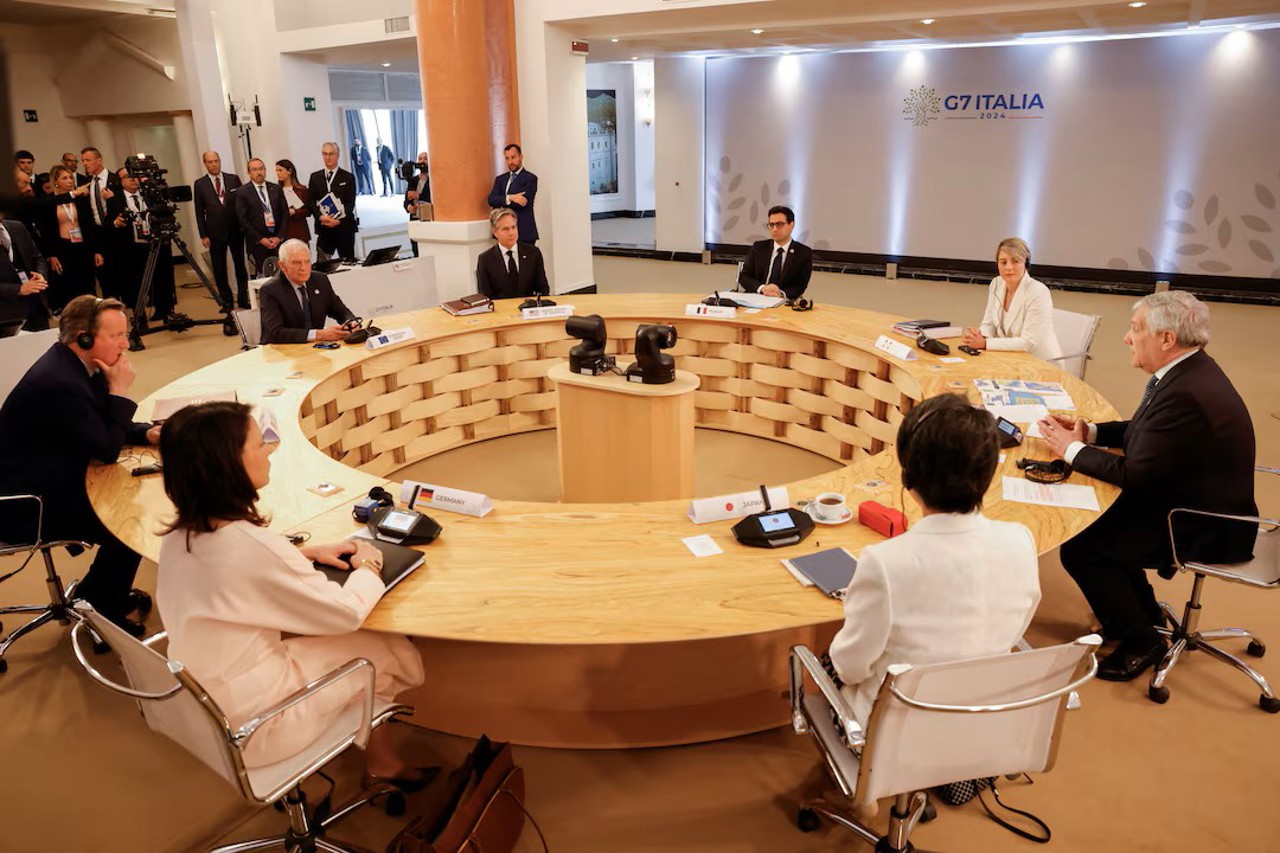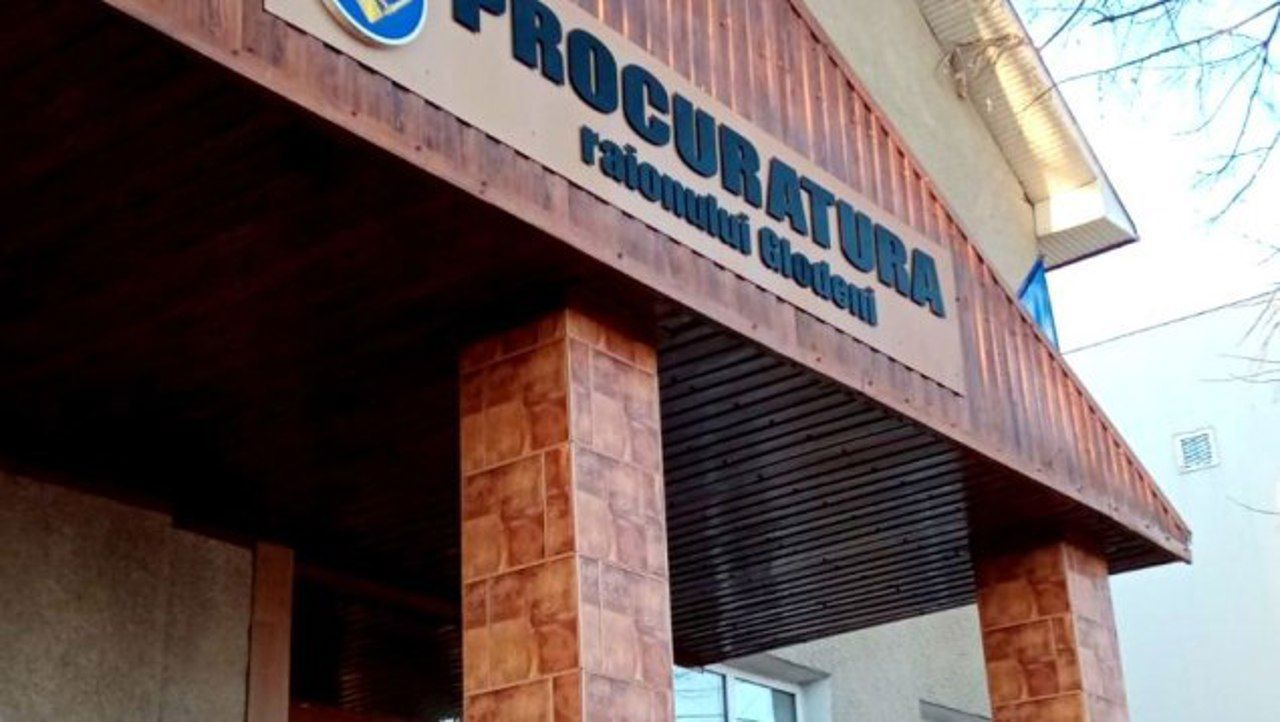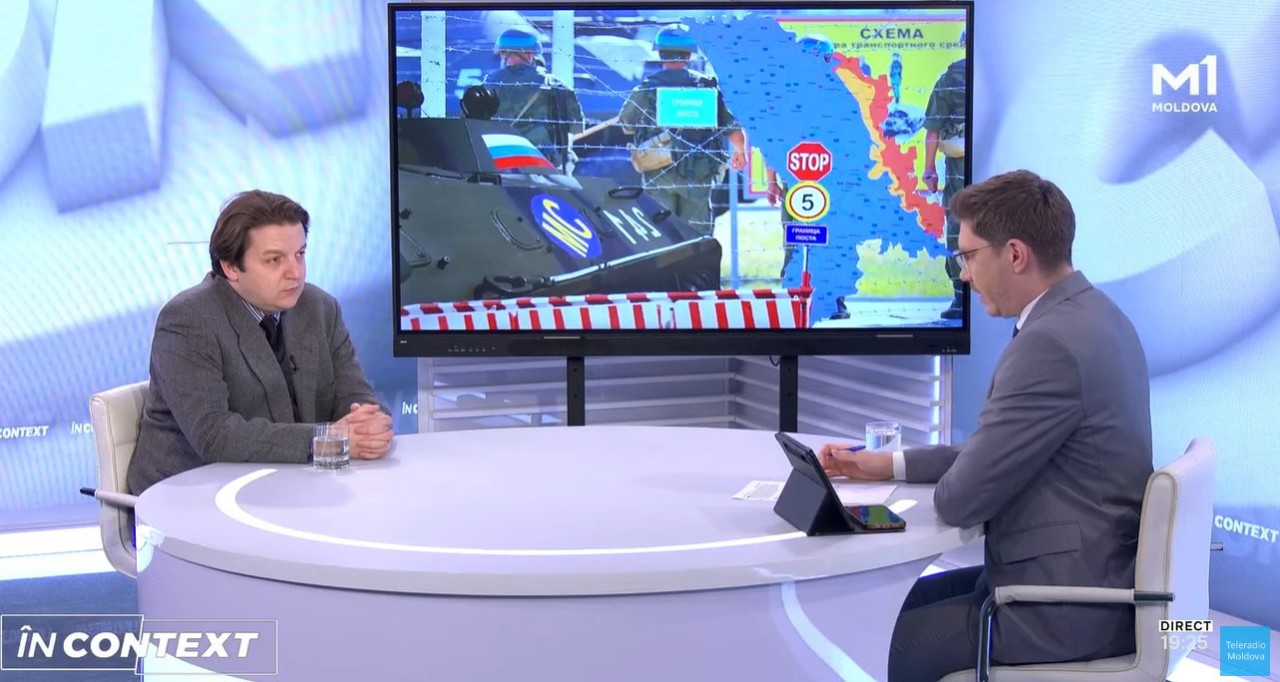Ukraine Needs Air Defense or Faces Defeat: G7
On Thursday, foreign ministers from the major powers of the Group of Seven (G7) issued a warning that Ukraine risks defeat by Russia unless it receives greater air defence capabilities. Meanwhile, Kyiv called for a shift in Western strategy towards the war, according to Reuters.

More than two years after Russia's full-scale invasion, Ukraine faces a critical shortage of ammunition. Vital funding from the US has been blocked for months due to internal political disagreements among Republicans in Congress. Additionally, the EU has failed to deliver sufficient ammunition in a timely manner.
The European Union's foreign policy chief, Josep Borrell, who is attending the G7 meetings alongside his counterparts from the United States, Italy, Germany, France, Britain, Japan, and Canada, urged EU member states to supply air defence systems to Ukraine. This military aid is crucial to help Ukraine protect its cities from ongoing Russian attacks targeting key infrastructure.
"If they do not receive such assistance, Ukraine's electricity system will be destroyed," Borrell told reporters at the beginning of Thursday's meeting. "No country can fight without a functioning electrical grid – at home, in factories, for online communication, for anything."
Ukrainian Foreign Minister Dmytro Kuleba highlighted a perceived difference in the West's approach towards Israel compared to Ukraine. He noted that when Iran launched missiles and drones towards Israel on Saturday, American, British, and French forces assisted in shooting them down.
"The strategy adopted by our partners in Israel appears to be focused on preventing casualties and damage," Kuleba said before talks in Capri. "In recent months, the strategy employed by our partners in Ukraine seems to be geared towards helping us recover from the damage inflicted."
"Therefore, our primary objective today is to find a way for our partners to develop a mechanism, a solution, that will also allow us to prevent death and destruction in Ukraine," Kuleba emphasised.
Hope Emerges from Washington
Internal political disputes in the US have delayed the delivery of desperately needed aid to Ukraine, valued at $60.84 billion. However, there is an encouraging sign. The US House of Representatives could finally vote on the aid package this weekend, offering some hope to G7 ministers.
"In these turbulent times, it is an encouraging sign that there are now indications from US Republicans that strong support for Ukraine will continue," German Foreign Minister Annalena Baerbock remarked at a press conference in Capri.
Kuleba expressed his hope of securing immediate pledges this week for the delivery of more advanced anti-aircraft defence systems, such as Patriot and SAMP/T missiles. Additionally, he seeks new Western sanctions targeting Iran's production of armed drones, which are being exported to Russia.
During the opening of Thursday's discussions, Italian Foreign Minister Antonio Tajani addressed the issue of sanctions against Iran. The West is seeking ways to penalise Tehran for the missile attack on Israel. However, Tajani also reiterated Western appeals for Israel to show restraint.
"Any form of retaliation would jeopardise the already fragile and delicate balances in the region," Tajani cautioned.
These appeals appear to have gone unheeded. On Wednesday, Israel declared that it would take its own decisions on how to defend itself. British Foreign Secretary David Cameron concurred, stating that it was clear Israel intended to retaliate.
While the Middle East and Ukraine will dominate the G7 meeting, which concludes on Friday, the ministers will also explore avenues to strengthen ties with Africa, discuss stability in the Indo-Pacific region, and hold debates on topics such as cybersecurity and artificial intelligence.
Translation by Iurie Tataru






